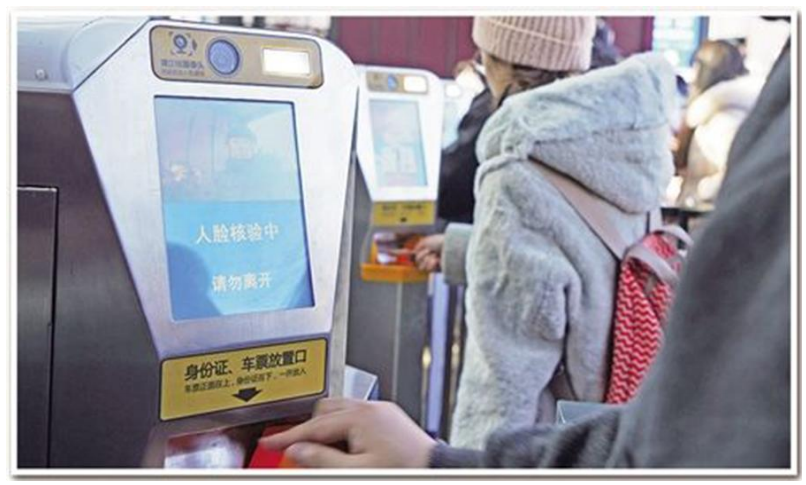Face recognition gate
High-speed rail, airports, and subway stations have a large daily passenger flow, especially during holidays, when the passenger flow doubles. Ticket inspectors have to face a huge flow of people for identity verification every day, which requires a lot of manpower and material resources. Manual inspection takes a long time. People can also pass through, causing adverse effects.
With the face recognition gates at the station using the current advanced face recognition technology, passengers can enter the station by "swiping their faces". Determine the various disadvantages that exist, and quickly judge whether it is the person and whether it is a fugitive suspect by comparing the ID card photo and face in real time, which improves the security level, and at the same time can effectively control the travel records of passengers and improve the railway station To create a safe environment for the railway station, to provide passengers with humanized and high-quality services.

Program introduction
The face recognition gate of the "swipe face" entry channel is equipped with a camera. When a passenger approaches the machine, the camera will lock the passenger's facial information and compare it with the photo in the chip of his ID card. If it matches the ID photo, the turnstile will be automatically released.
The Xinhua ZK-32A motherboard integrates the precise face recognition algorithm to realize the face recognition solution.

| CPU | Rockchip RK3288 1.6GHz Cortex-A17 Quad Core GPU Mail-T764 |
|---|---|
| GPU | Mali-T764 GPU, supports AFBC (frame buffer compression), supports OpenGL ES 1.1/2.0/3.1, OpenCL, DirectX9.3, embedded high-performance 2D acceleration hardware |
| Memory | DDR3 2GB, maximum support 4GB |
| Built-in memory | EMMC 8G, up to 128GB |
| USB port | 6 USB 2.0 (including 1 USB OTG) |
| Serial port | 4 serial ports, default TTL (optional RS232); UART4 can be optional 485 |
| I2C interface | 1 standard I2C interface, the communication level is 3.3V, which can be used for touch and communication |
| GPIO interface | 4 GPIO ports, the communication level is 3.3V |
| Gravity sensing support | Onboard G-sensor (reserved function, optional) |
| Timer switch | support |
| Real Time Clock | support |
| Camera interface | 1 MIPI camera interface, maximum support 1300W pixels |
| Wiegand interface | Support Wiegand 26/34 (OD0/1 send, ID0/1 receive) |
| Fill light interface | 1 (current ≤ 500mA) default output 12v (optional 5v) |
| Fan interface | 1 (current ≤ 500mA) default output 12v (optional 5v) |
| Ethernet | 1 standard RJ45 interface, 10/100M adaptive Ethernet |
| Wi-Fi/Bluetooth | With WIFI module, default 2.4GWIFI (BT and 5GWIFI optional) |
| LVDS output | 2 LVDS, of which 1 FPC40p socket (support single 6/8 bit), 1 DuPont head 30p double row pin socket (support single/dual 6/8 bit) maximum support 1920*1080 resolution |
| EDP output | 1 DuPont head 20p double-row pin socket, maximum support 2560*1600 |
| MIPI output | 1 30P FPC connector, maximum support 1920*1080 |
| HDMI output | 1 Micro HDMI interface, support 4K/1080P output |
| MIPI screen output | 1 |
| Speaker output | Left and right dual channel output, maximum support 8R*5W/4R*10W dual speakers, default 8R*1.5W/4R*3W |
| Microphone interface | Microphone interface 1 channel microphone mono input (analog signal input) |
| Operating system | Android 7.1/5.1 |
| Power outlet | 1 2.54mm-4P input socket |
| Power Adapter | Input: AC100-240V.50-60HZ, Output: DC12V 3A (depending on the screen) |
| System Upgrade | Support PC/U disk |